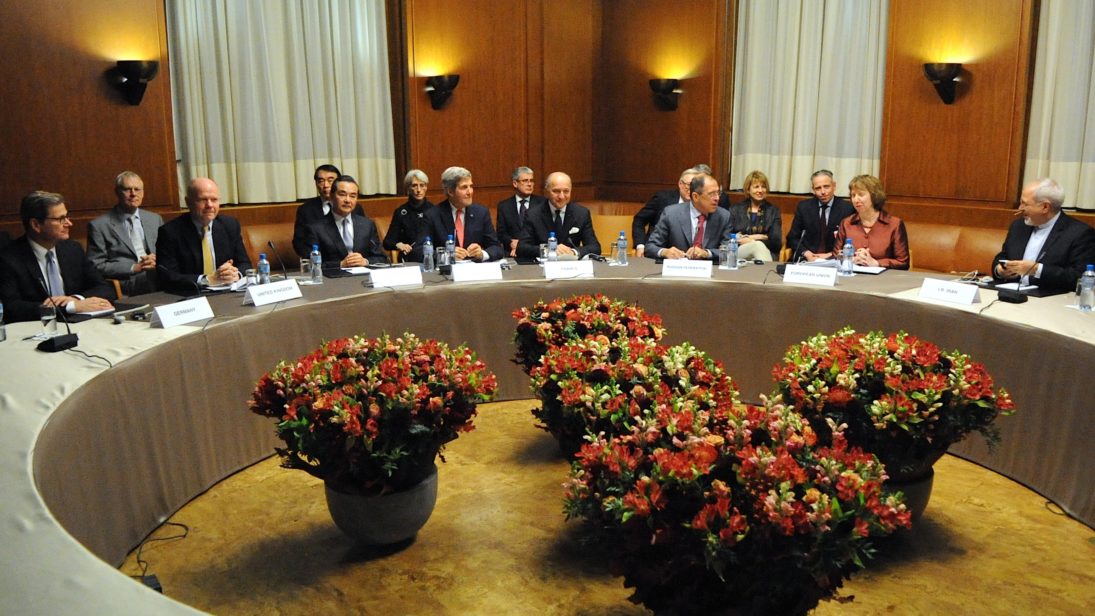
So we finally have an agreement between the P5+1 and the Islamic Republic of Iran, with the condition of reducing centrifuges from 19,000 to 6,104. Tehran has also agreed to limit enrichment to only the Natanz plant for the next ten years, as well as to allow invasive IAEA inspections. This is being seen as a milestone achievement in many quarters. My fellow colleague, Rabia Akhtar, has pointed out at several important caveats which are essential in understanding as to why hailing this breakthrough as a diplomatic achievement at this point in time is like claiming that Albert Einstein was a scientist. It reveals a criminally bare story.
I would like to go a step further, given my proclivity towards realism and my humble understanding of geopolitical realities, which in my view, can hijack this promising start and make the Knesset twitch even further. This deal, ladies and gentleman, has taken place in the midst of a severe crisis in Yemen, which has been going on since 2011 and can be traced to the 2011-12 revolution directed against President Ali Abdullah Saleh. In all due fairness, the conflict essentially boils down to a power struggle between the ousted Abd Rabbuh Mansur Hadi, who claims that he remains Yemen’s legitimate president and the Houthi rebels (which are a ‘Zaidi’ group) and the state. Houthi rebels have launched an insurgency in the country since 2004 and are alleged being backed by Iran.
Now what does this all have to do with the Iranian nuclear deal? As history has suggested, U.S. foreign policy overtures in the Middle East have been deprived of understanding geopolitical dynamics, whether it has dealt with curbing the ascendancy of ‘ Baathism’ or ‘ Nasserism,’ or funneling in petrodollars to Kingdoms which espouse puritanical versions of Islam and allegedly and tacitly approve rogue elements. No surprise that Saudi Arabia is the first country that comes to mind, with its rather ‘benevolent’ Al Saud legacy, benefitting myopic strategies from across the Atlantic. With Saudi Arabia’s direct involvement in the crisis and the Arab coalition actively involved, capitals as ‘far flung’ as Islamabad with center-right governments in power could possibly be embroiled in the conflict, which would have massive ramifications for regional stability across West Asia, let alone the Middle East. Tacit support by Tehran to the Houthi rebels, however, would prove to be far more nuanced, despite the historic importance Tehran has placed on the Alawite-dominated government in Syria, as well as on the Zaidis, which are an offshoot of mainstream Shia Islam.
As the Kargil episode of 1999 has demonstrated, limited warfare is certainly possible, despite neorealist assertions of nuclear weapons having a ‘more the merrier’ effect. With Israel’s worst-kept secret intact, and Netanyahu clinging onto reservations over the deal being too soft on Tehran, crisis escalation and standoffs between the Arab coalitions and rogue elements allegedly supported by Iran would complicate the terms and agreements of the deal. The JCPOA, or Joint Comprehensive Plan, is still not final, with key precedents open to negotiation. If the crisis in Yemen continues to spiral with more direct involvement of Saudi Arabia and its regional allies, it will be extremely interesting to see the mood in Washington, which could deal with the dilemma of balancing its alliances with Israel and Saudi Arabia, as well as with keeping the Iranian nuclear deal intact. Furthermore, as Rabia Akhtar pointed out, a lot depends on whether this deal can sustain itself beyond the Obama government, where growing predictions of a Republican government coming into power makes this concern likely.
Important questions emerge as a result of the above developing geopolitical realities:
- Would allegations of Iranian support for the Houthi rebels have an impact on the U.S. diplomatic stance towards Iran and its nuclear program, particularly if Netanyahu continues to go on a rhetorical rant?
- How would Saudi Arabia’s adamancy on pushing the Houthis on the back foot go down with Tehran and Washington? Would the Obama Administration call for restraint or a diplomatic resolution to the crisis?
In Riyadh, ‘Houthi, Houthi’ is being sung in Cheb Khaled’s ‘Di Di’ style at the moment. Meanwhile, the nuclear deal has been struck next door in Tehran. Don’t get me wrong—we should all hail this achievement. Yet we should also be cognizant of regional dynamics in the Middle East, which are unfolding at an alarming rate.
***
Image 1: U.S. Department of State, Flickr
Image 2: